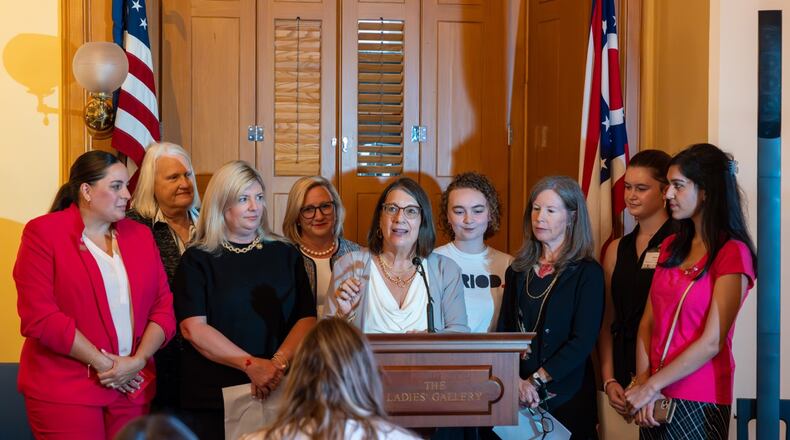Most of the school districts locally who have feminine products available for students said the products are available in the main office or in the nurse’s office, including Centerville and Valley View. Some other schools in the region have a dispenser for period products but they are not always refilled.
New Lebanon superintendent Greg Williams said the district was providing period products, “as needed.”
“We are not aware of any additional funding for the products at this time,” Williams said.
Antonio said the Ohio Department of Education, or its equivalent, would be responsible for letting school districts know about the new requirement and the money to provide the products.
The Ohio Department of Education is undergoing a transformation right now because the most recent budget bill – the same bill that provided the period product funding – changed the oversight of the state’s education.
Under the former law, the Ohio State Board of Education picked the state’s superintendent, who oversaw the Ohio Department of Education. The budget now requires the Ohio governor to choose a cabinet position of director of education and workforce, who will oversee two subdivisions, one that focuses on kindergarten through high school and the other that focuses on creating a workforce.
That change hasn’t happened yet, and there is a lot of uncertainty about what exactly will happen.
Antonio said it’s important for girls to have access to menstruation products in schools for continued learning. She noted research that showed among teenage girls in the United States, many said they often or sometimes can’t do their best schoolwork because of a lack of access to these products.
“It really gets in the way of them being able to arise to their fullest potential,” Antonio said. “When students lack access to period products, they face barriers and may avoid going out in public while wearing stained clothing in public, without the necessity necessary sanitary products.”
State Senator Stephanie Kunze, R-Dublin, said as a former school secretary, she saw many girls have to leave school because of a lack of access to menstrual products.
“We heard from advocates throughout the state that this will significantly aid in ensuring less truancy and stigma, and promoting productivity and participation in the classroom,” Kunze said.
More than 20 states have similar laws increasing period product access in schools.
About the Author

